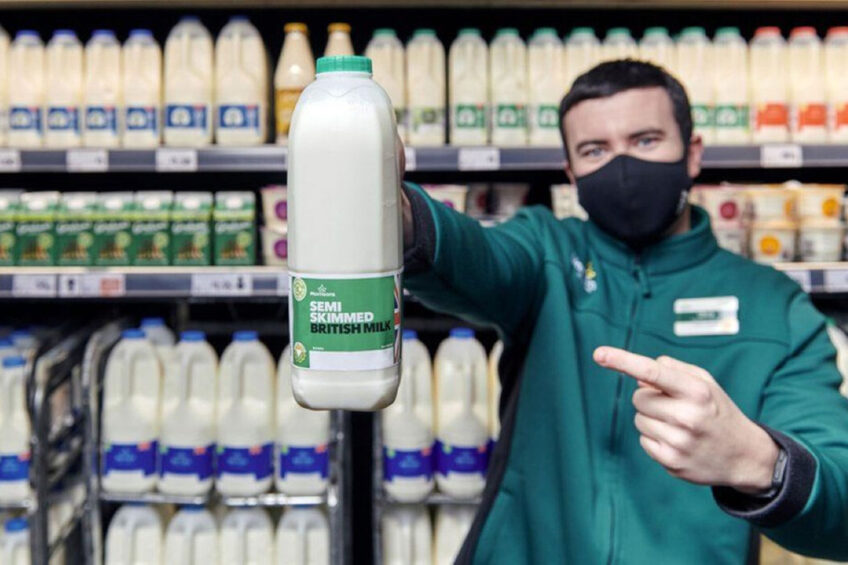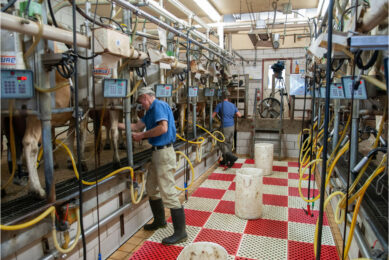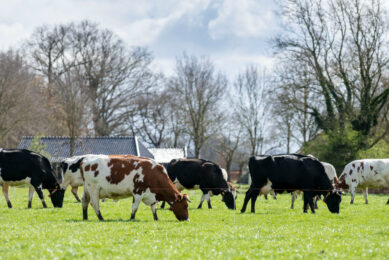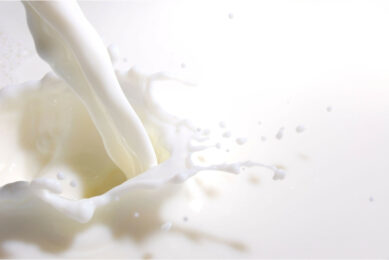Major UK supermarket bins use-by date on milk

One of the UK’s big 4 supermarkets, Morrisons, has announced it is scrapping the ‘use by’ date on its own brand milk in favour of the sniff test.
Morrisons will remove the dates on 90% of its own brand milk by the end of January in a bid to reduce food waste around the home and replace it with a ‘best before’ date.
By using the sniff test to check if the milk is ok to consume, Morrisons says this has the potential to stop millions of pints of its milk being thrown out each year. By simply smelling milk, it is easy to tell that if it has a sour aroma or curdled consistency the milk has most likely gone off and should not be consumed.
We’re taking a bold step and asking customers to decide whether their milk is still good to drink.
Dairy farmers and unnecessary carbon
Ian Goode, senior milk buyer at Morrisons: “Wasted milk means wasted effort by our farmers and unnecessary carbon being released into the atmosphere. Good quality, well-kept milk has a good few days life after normal ‘use by’ dates, and we think it should be consumed, not tipped down the sink. So, we’re taking a bold step and asking customers to decide whether their milk is still good to drink. Generations before us have always used the sniff test, and I believe we can, too.”
‘Use by’ vs ‘Best before’
‘Use by’ dates are the recommended deadline which perishable food can be cooked and consumed safely. ‘Best before’ dates on food are a guide for when the product should be consumed to get the best quality, taste and texture.
According to the recycle agency, Wrap, milk is the third most wasted food and drink product in the UK after potatoes and bread, with around 490 million pints thrown out each year.
Welcomed by farming industry
Wrap estimates around 85 million pints of milk are thrown out by consumers who strictly follow the ‘use by’ date.
The decision by Morrisons has been broadly welcomed by the farming industry with some groups declaring the move as good common sense.
The Royal Association of British Dairy Farmers (RABDF) has also welcomed the decision, which is the first supermarket in the UK to remove the ‘use by’ date.
If we can prevent 490 million pints (278 million litres) from going down the drain, that equates to circa 2 billion litres of water saved.
Peter Alvis, RABDF chairman, said the supermarket’s decision is good news for the industry. “A lot of effort goes into milk production, and anything we can do to minimise its waste is welcomed. In the UK, we are only about 77% self-sufficient in milk production, so reducing waste will help some way to improve food security and reducing food miles.”
“It takes 8 litres of water to produce 1 litre of milk, or 158 litres of tap water to produce 1 litre of almond drink. So, if we can prevent 490 million pints from going down the drain, that equates to circa 2 billion litres of water saved,” he added.
The carbon footprint of a litre of British milk is around 1.25kg CO2e36 compared to a global average of 2.9kg CO2e per litre, with the dairy industry responsible for less than 2% of the UK’s total emissions.
Alvis says he hopes more retailers will follow suit by replacing ‘use by’ dates with ‘best before’ dates on milk and some other dairy products and calls on the supermarkets to educate consumers on the different labelling terminology.
“As well as more supermarkets replacing ‘use by’ dates with ‘best before’ dates on some of its dairy products, it is also important they explain what the terms mean. Just because something it passed its best before date, it doesn’t mean it needs to be binned,” he said.
Join 13,000+ subscribers
Subscribe to our newsletter to stay updated about all the need-to-know content in the dairy sector, two times a week.










